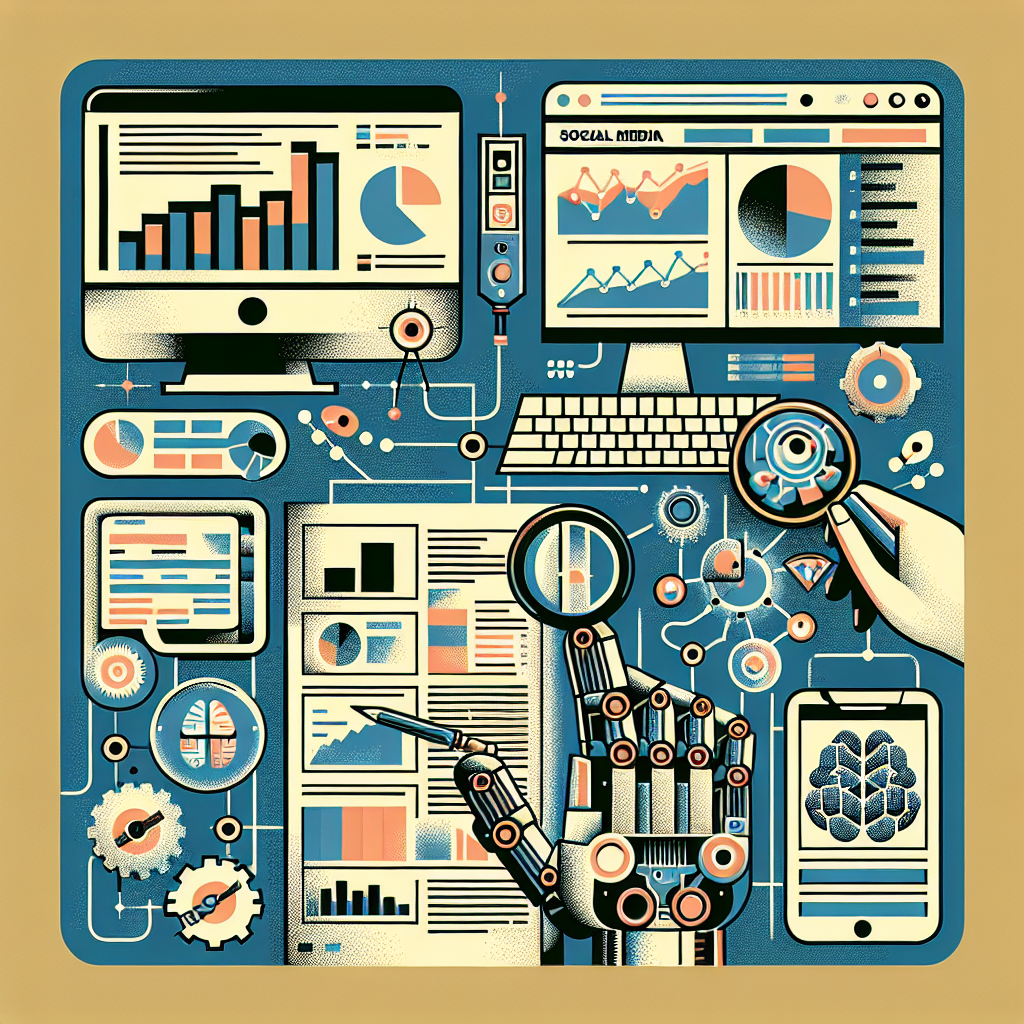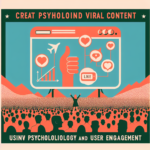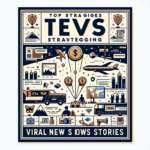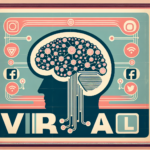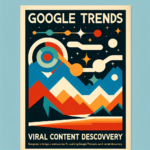Exploring AI Powered Tools in Digital Marketing
Ever wondered how artificial intelligence (AI) is shaping the world of digital marketing? If so, you’re in the right place.
In this article, we’re about to uncover the role, benefits, and popular examples of AI tools that are transforming marketing as we know it. We’ll look into how AI enhances content creation and how it poses some unique challenges too.
We’re also going to take a look at how AI works in the social media sphere, including the ways it helps in customer interaction, content optimization, ad campaigns, and how it’s used in content research. To top it all off, we’ll also discuss a slightly different aspect of AI – content detection, and how it can identify whether content is AI-generated or human-made.
Is your interest piqued? Good, let’s get started!
Exploring AI Powered Tools in Digital Marketing
What Are AI Powered Tools?
AI powered tools utilize artificial intelligence to automate tasks and provide insights in digital marketing. These tools can analyze data, predict trends, and execute strategies typically requiring human intervention. By leveraging AI, marketers can make data-driven decisions faster and more accurately.
Benefits of Using AI Powered Tools
AI powered tools offer numerous advantages in digital marketing:
- Automation of repetitive tasks
- Enhanced personalization of content
- Improved data analysis and insights
- 24/7 customer support via chatbots
- Predictive analytics for future trends
Popular AI Powered Tools in Digital Marketing
Here’s a look at some commonly used AI tools:
| Tool Name | Purpose |
|---|---|
| HubSpot | Email marketing and CRM |
| Pathmatics | Ad intelligence and insights |
| Grammarly | Writing enhancement |
How AI Enhances Viral Content Creation
AI tools can predict what type of content will go viral by analyzing:
- Current trends and audience engagement
- Popular topics and keywords
- Social media interactions
Artificial intelligence can help marketers create content that resonates with their target audience, thereby increasing the chances of it going viral.
Challenges and Considerations
Despite their advantages, AI powered tools come with challenges:
- Data privacy concerns
- Potential biases in AI algorithms
- Dependency on technology, underestimating human creativity
It’s important for marketers to maintain a balance between technology use and human intuition.
Forbes provides insights and case studies on trending AI tools in digital marketing, highlighting both their opportunities and challenges.
Applying AI in Social Media Marketing
The Role of AI in Social Media
AI integration in social media has opened up new opportunities for digital marketers. With the help of AI, social media platforms can offer personalized content, targeted ads, and improve user experience. Platforms like Facebook, Instagram, and Twitter use AI for tasks ranging from facial recognition to content recommendations.
One popular application of AI is in social listening. AI-powered tools can analyze posts and comments on social media, tracking sentiment and opinions about brands or products. This can help businesses to respond proactively, making changes where necessary.
AI for Customer Interaction in Social Media
AI has vastly improved the way businesses interact with customers on social media. Businesses are now utilizing AI-powered chatbots for customer service, which can significantly reduce customer response time and increase customer satisfaction.
Aside from their efficiency in handling common queries, chatbots also collect valuable data about customers, which can be analyzed to further improve customer service and offer personalized products or services.
AI for Content Optimization in Social Media
Creating engaging content is essential in social media marketing, and AI provides substantial help with this. Machine learning algorithms are capable of predicting trends and identifying topics that will resonate with the target audience. This means businesses can create content that is much more likely to encourage customer engagement.
Moreover, predictive textual analysis can aid in producing more refined and polished content, reducing the risk of errors that could negatively impact brand reputation.
AI for Social Media Ad Campaigns
AI’s ability to analyze massive amounts of data can be highly beneficial for ad targeting. Using data from previous interactions, AI can predict the type of content and ads that a particular user is likely to engage with. Incorporating this data into paid advertisement campaigns can enhance their effectiveness, leading to higher conversion rates.
Challenges of AI in Social Media Marketing
Like any technology, AI has its own set of challenges when applied to social media marketing. One significant issue is ensuring the responsible use of data. As AI relies on vast quantities of user information for optimization and targeting, guaranteeing privacy and protecting user data is a major concern.
Also, the reliance on AI can lead to a cold, mechanical communication tone that lacks the warmth and personal touch of human interaction. Striking a balance between automation and human-like communication can be a continuous challenge.
Forbes highlights several examples of how businesses have overcome these challenges, making AI an unparalleled tool in modern-day social media marketing.
AI Tools for Social Media Content Research
Importance of AI in Content Research
AI-powered tools are transforming the way businesses conduct content research for social media. By using advanced algorithms, these tools can sift through vast amounts of data to identify trending topics, optimal posting times, and audience preferences. This enables marketers to craft content that is not only engaging but also strategically aligned with current social media dynamics.
Key Features of AI Tools for Social Media
AI tools bring several powerful elements to the table for content research:
- Trend Analysis: Identify emerging trends and popular hashtags to stay relevant.
- Audience Insights: Understand audience demographics, interests, and behaviors.
- Competitor Analysis: Monitor competitors’ strategies and performance to find opportunities for differentiation.
Examples of AI Tools Enhancing Content Research
Various AI platforms specialize in social media content research, providing comprehensive insights and strategies.
| Tool Name | Key Features |
|---|---|
| BuzzSumo | Content discovery and viral trend prediction |
| Hootsuite Insights | Real-time social analytics and sentiment tracking |
| Crimson Hexagon | Advanced audience segmentation and trend analysis |
Crafting Content with AI Insights
By leveraging AI-driven insights, businesses can refine their content creation process. This includes understanding which types of media (videos, images, text) perform best and at what times to post them for maximum engagement. AI tools also help in identifying the tone and messaging style that resonates most effectively with the target audience, ensuring the content is both relatable and impactful.
Additional Considerations for Using AI in Social Media
When incorporating AI into social media strategies, marketers should bear in mind:
- Data Sensitivity: Ensure compliance with privacy laws and responsible use of data.
- Continuous Learning: AI systems require frequent updates to adapt to changing algorithms and user behaviors.
- Human Oversight: Blend AI efficiency with human creativity to maintain authenticity and emotional connection.
AI tools offer a wealth of data and insights for social media content research, aligning brand strategies with the evolving digital landscape. For more insights and examples, consider exploring resources available on Forbes, which provides practical case studies and expert analyses.
AI Tool for Detecting AI-Generated Content
What is AI Content Detection?
AI content detection is an application of artificial intelligence aimed at identifying whether a piece of content was created by a human or generated by AI. As AI writing tools become more sophisticated, the demand for reliable detection methods has increased. These tools analyze various elements of a text to determine its origination and authenticity.
Importance of Detecting AI Content
Identifying AI-generated content is essential for several reasons:
- Ensuring Authenticity: Verifies originality and prevents plagiarism.
- Maintaining Trust: Builds transparency for audiences who may prefer human-written content.
- Regulating Misinformation: Reduces the spread of false information sometimes disseminated through automated content generation.
Popular Tools for AI Content Detection
Numerous AI content detection tools are making strides in the technology landscape. Below are a few notable ones:
| Tool Name | Key Features |
|---|---|
| Copyscape | Plagiarism detection and content analysis |
| Turnitin | Academic integrity and originality checking |
| GPT-2 Output Detector | Specifically designed to recognize texts generated by OpenAI’s GPT models |
AI vs. Human Content: Key Differences
AI-generated content differs from human-created content in several subtle ways. Here are a few indicators:
- Predictability: AI tends to produce predictable and repetitive patterns.
- Stylistic Uniformity: AI content might lack the nuance and variation often found in human writing.
- Creativity: While AI can simulate creativity, human content often showcases unique perspective and thought.
Challenges in Detecting AI Content
AI content detection tools face a few challenges:
- Evolving AI: As AI models evolve, their outputs become more sophisticated and harder to detect.
- False Positives: Human-like text might occasionally be misclassified as AI-generated and vice-versa.
- Technical Barriers: Needs continuous updates and advancements to keep pace with new AI developments.
Even as these tools improve, balancing their use with responsible practices remains vital. For further exploration in AI authenticity tools, visit Forbes for insightful reports and updates.
Conclusion: Embracing AI Tools in Digital and Social Media Marketing
With the changing landscape of digital and social media marketing, the roles of artificial intelligence (AI) tools are steadily becoming more important. These tools offer enormous potential in automating tasks, predicting trends, personalizing content, and executing strategies.
However, they also pose some challenges, with data privacy, potential biases, and over-reliance on technology being the key concerns. Notwithstanding these, the advantages far outweigh the drawbacks. AI tools like HubSpot, Pathmatics, Grammarly, and others have proven to be excellent enablers in marketing strategies.
Businesses using AI-powered social listening tools can analyze social posts and conversations, enabling more proactive brand responses. Chatbots have transformed customer interaction, offering faster response times and personalized service. These AI tools also serve as goldmines for data collection and analysis, providing further opportunities for customer engagement and increased conversion rates.
Frequently Asked Questions – FAQs
What are the key benefits of using AI in digital marketing?
AI tools in digital marketing provide benefits such as automation, personalization of content, improved data analysis, 24/7 customer support through chatbots, and predictive analytics for future trends.
What are some popular AI tools used in digital marketing?
Popular AI tools in digital marketing include platforms like HubSpot for email marketing and CRM, Pathmatics for ad intelligence, and Grammarly for writing enhancement.
How do AI tools enhance viral content creation?
AI tools predict the type of content likely to go viral by analyzing trends, audience engagement, popular topics, and social media interactions. This allows marketers to create content that resonates better with their target audience.
How does AI impact social media marketing?
AI has proven to be a game-changer in social media marketing with personalized content, targeted ads, improved user experiences, social listening, enhanced customer interactions, content optimization, and efficient ad campaigns.
What challenges are associated with the use of AI in marketing?
The use of AI in marketing also brings challenges like data privacy concerns, potential biases in AI algorithms, and dependency on technology which might underestimate human creativity.
Why is detecting AI-generated content important?
Detecting AI-generated content is necessary for maintaining the authenticity of the content, building trust with audiences who prefer human-written content, and regulating the spread of misinformation potentially disseminated via automatically generated content.
